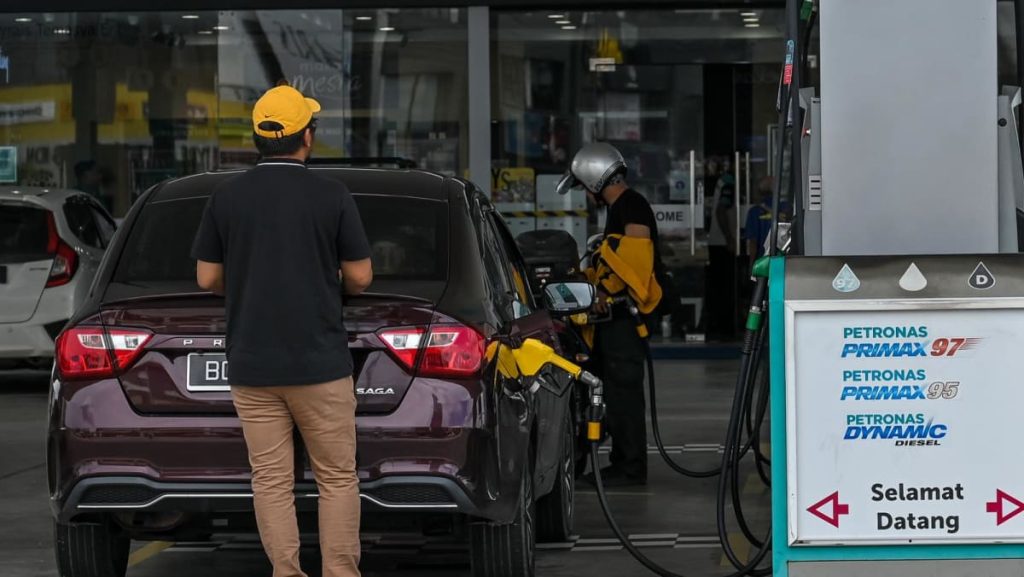The incident at a Malaysian petrol station, where a woman attempted to refuel her foreign-registered vehicle with subsidized RON95 petrol, underscores the ongoing challenge of preventing the misuse of government-subsidized fuel. While the woman in question only managed to pump a negligible amount before being stopped by vigilant petrol station staff, the incident highlights the potential for abuse and the need for continued vigilance on the part of both petrol station operators and enforcement authorities. The woman’s attempt to utilize a debit card for payment adds another layer to the issue, raising questions about the efficacy of existing preventative measures.
The Malaysian government has implemented stringent regulations under the Control of Supplies Act 1961 to curb the illegal sale of subsidized petrol to foreign-registered vehicles. These regulations impose hefty penalties on petrol station operators found complicit in such activities, with fines ranging from RM1 million to RM3 million and potential imprisonment for repeat offenders. The government further intensified these penalties in 2024, empowering authorities to levy fines exceeding RM1 million even for first-time offenses. This underscores the seriousness with which the government views the issue and the pressure it places on petrol station operators to ensure compliance.
The focus on holding petrol station operators accountable reflects the self-service nature of most Malaysian petrol stations. This system, while efficient and convenient for motorists, creates an environment where unauthorized refueling can occur more easily. The onus, therefore, falls heavily on station owners to implement preventative measures, such as assigning dedicated staff to monitor pumps and verify vehicle registrations, particularly during peak periods like festive seasons. The incident in question demonstrates the crucial role of these frontline staff in preventing the misappropriation of subsidized fuel.
While the existing regulations primarily target petrol station operators, the question of holding individual motorists accountable remains open. Currently, no specific laws exist to penalize drivers of foreign-registered vehicles who attempt to purchase subsidized RON95 petrol. This legal gap potentially creates an incentive for abuse, as drivers face no direct consequences for their actions. While the government has not yet issued any directives regarding the use of cash versus card payments for foreign-registered vehicles, the incident highlights the need to consider further measures to deter individual misconduct.
The government’s commitment to protecting subsidized fuel resources is further evidenced by its efforts to monitor the targeted diesel subsidy implementation. In 2023, the Domestic Trade and Cost of Living Ministry deployed a significant number of enforcement officers to oversee diesel sales and ensure compliance with the pricing mechanism. This proactive approach reflects the government’s broader strategy to safeguard subsidized fuels and prevent their diversion to unauthorized users. The setting of diesel prices based on the Automatic Pricing Mechanism formula further demonstrates the government’s commitment to a market-driven approach while ensuring the availability of essential fuels.
The incident at the petrol station serves as a reminder of the ongoing challenges in maintaining the integrity of fuel subsidy programs. Balancing the convenience of self-service petrol stations with the need to prevent unauthorized fuel purchases requires continuous vigilance, proactive measures from petrol station operators, and ongoing review of existing regulations. While the current focus is on holding petrol station operators accountable, the potential for individual motorist involvement warrants consideration for future policy adjustments. The government’s commitment to monitoring and enforcement, as demonstrated by its efforts related to diesel subsidies, indicates a dedication to protecting subsidized resources and ensuring their intended beneficiaries receive the intended benefits. The incident highlights the need for a multi-pronged approach that combines stringent regulations, proactive enforcement, and public awareness to effectively combat fuel subsidy abuse.

